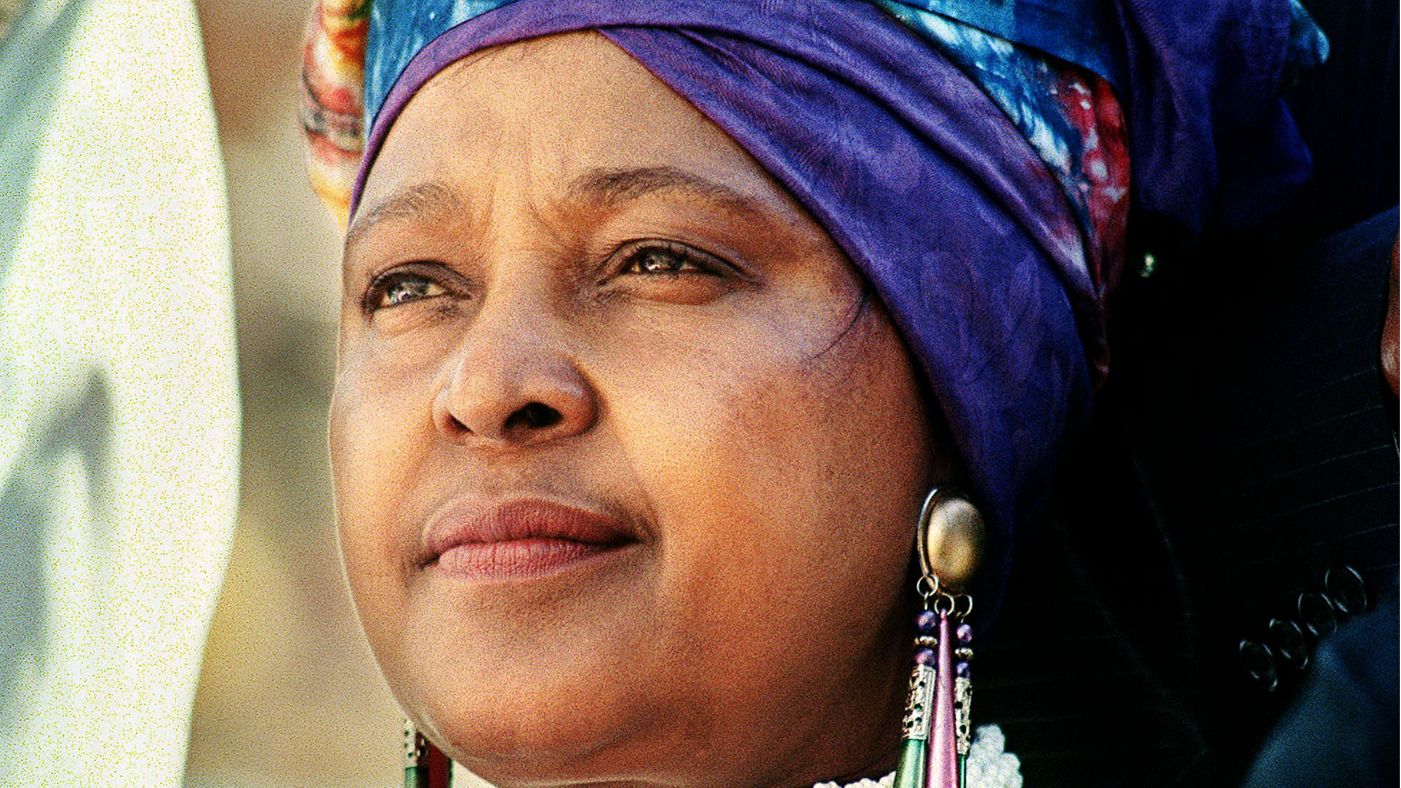
South Africa to give state burial to Winnie Madikizela-Mandela

Winnie Madikizela-Mandela will be honored by a state funeral on April 14, preceded by an official memorial service on April 11, said President Cyril Ramaphosa after visiting her home in Johannesburg’s Soweto township Monday evening.
Ramaphosa described Madikizela-Mandela in a televised tribute as a “champion of justice and equality” and a “voice for the voiceless.”
The woman many South Africans have described as the “Mother of the Nation” and a champion of the black majority, died Monday at the age of 81. She was “surrounded by her family and loved ones,” according to a statement released by Madikizela-Mandela’s family.
Over the years, Madikizela-Mandela became a symbol of the suffering caused by South Africa’s system of white minority rule known as apartheid and became a force against it, ultimately serving as a member of parliament.

She and her husband, Nelson Mandela, began a family before he went underground and then was imprisoned for more than a quarter-century. Left with two young daughters, Madikizela-Mandela was persecuted by police and banished to a remote town where neighbors were forbidden to speak with her.
The woman who returned to Johannesburg in 1985 following her banishment was much harder, more ruthless and bellicose, branded by the cruelty of apartheid and determined vengeance.
In her book “100 Years of Struggle: Mandela’s ANC,” Heidi Holland suggested that Madikizela-Mandela was “perhaps driven half-mad by security police harassment.” In an infamous 1986 speech she threatened “no more peaceful protests.”
Instead, she endorsed the “necklacing” method of killing suspected informers and police with fuel-doused tires put around the neck and set alight.
“Together hand-in-hand, with our boxes of matches and our necklaces, we shall liberate this country,” she said.
At the time, the African National Congress party and its army of guerrilla fighters were riddled with spies and informers, some willing, others tortured into submission.
Still harassed by police, Madikizela-Mandela gathered a group of young men known as the Mandela United Football Club, who lived on her property.
But they terrorized the black township of Soweto to the point that people set Madikizela-Mandela’s home there on fire, according to an autobiography by ANC veteran Amina Cachalia and other accounts.
Her bodyguards were accused of the disappearances and killings of at least 18 boys and young men. In the most infamous case, her bodyguards in 1989 kidnapped four boys including 14-year-old James “Stompie” Seipei Moeketsi.
He was accused of being a police informer, badly beaten and his throat slit. In 1991, Madikizela-Mandela was charged with Moeketsi’s killing. A court found her guilty of his kidnapping and assault and sentenced her to six years in jail.
She appealed and was found guilty of being an accessory in the assault, and the sentence was reduced to a fine and a suspended prison term. Madikizela-Mandela steadfastly denied any knowledge of any killings, leading the judge in that case to brand her “an unblushing liar.”
As Nelson Mandela emerged from 27 years in prison seeking reconciliation and forgiveness, Winnie Madikizela-Mandela continued to fight for the prosecution of the perpetrators of apartheid.

The newly freed Mandela stood by his wife, urging friends to come to court to show their support, according to Cachalia in her autobiography “When Hope and History Rhyme.” The marriage that survived decades of prison bars dissolved with a formal separation in 1992, two years after Mandela’s release.
Still, Madikizela-Mandela remained a venerated figure in the ruling African National Congress, which has led South Africa since the end of apartheid in 1994.
She continued to tell the party “exactly what is wrong and what is right at any time,” said senior ANC leader Gwede Mantashe.
However, by that time Madikizela-Mandela’s political career had peaked and the fall from grace soon followed. Her image, first tarnished by the 1991 kidnapping and assault conviction, was further damaged when she faced the allegations again during the 1997 hearings before the Truth and Reconciliation Commission, a panel that investigated apartheid-era crimes.
In 2003 as a parliamentarian after South Africa’s first all-race elections, she was convicted of fraud.
The conviction appeared to end her career. She quit Parliament and resigned from her posts as president of the ANC Woman’s League and a member of the party’s executive committee.
But her base of support, mostly downtrodden black women and youth, remained loyal. In 2009, months before general elections, ANC members made her No. 5 on their election list, a measure of her enduring popularity.
“She refused to be bowed by the imprisonment of her husband, the perpetual harassment of her family by security forces, detentions, bannings and banishment,” Former Archbishop Desmond Tutu said. “Her courageous defiance was deeply inspirational to me, and to generations of activists.”

U.N. Secretary-General Antonio Guterres called Madikizela-Mandela “a leading figure at the forefront of the fight against apartheid in South Africa,” his spokesman Stephane Dujarric said. Guterres said “she was a strong and fearless voice in the struggle for equal rights and will be remembered as a symbol of resistance,” Dujarric told reporters at U.N. headquarters in New York.
Madikizela-Mandela had been in and out of hospital since the start of the year, according to her family. She had back surgery a year ago.
After hearing of her death, some people gathered Monday evening outside Madikizela-Mandela’s home in the Soweto area of Johannesburg to sing tributes. She had attended Easter services in Soweto over the long weekend.
The family said it will release details of her memorial and funeral services when they are finalized.






